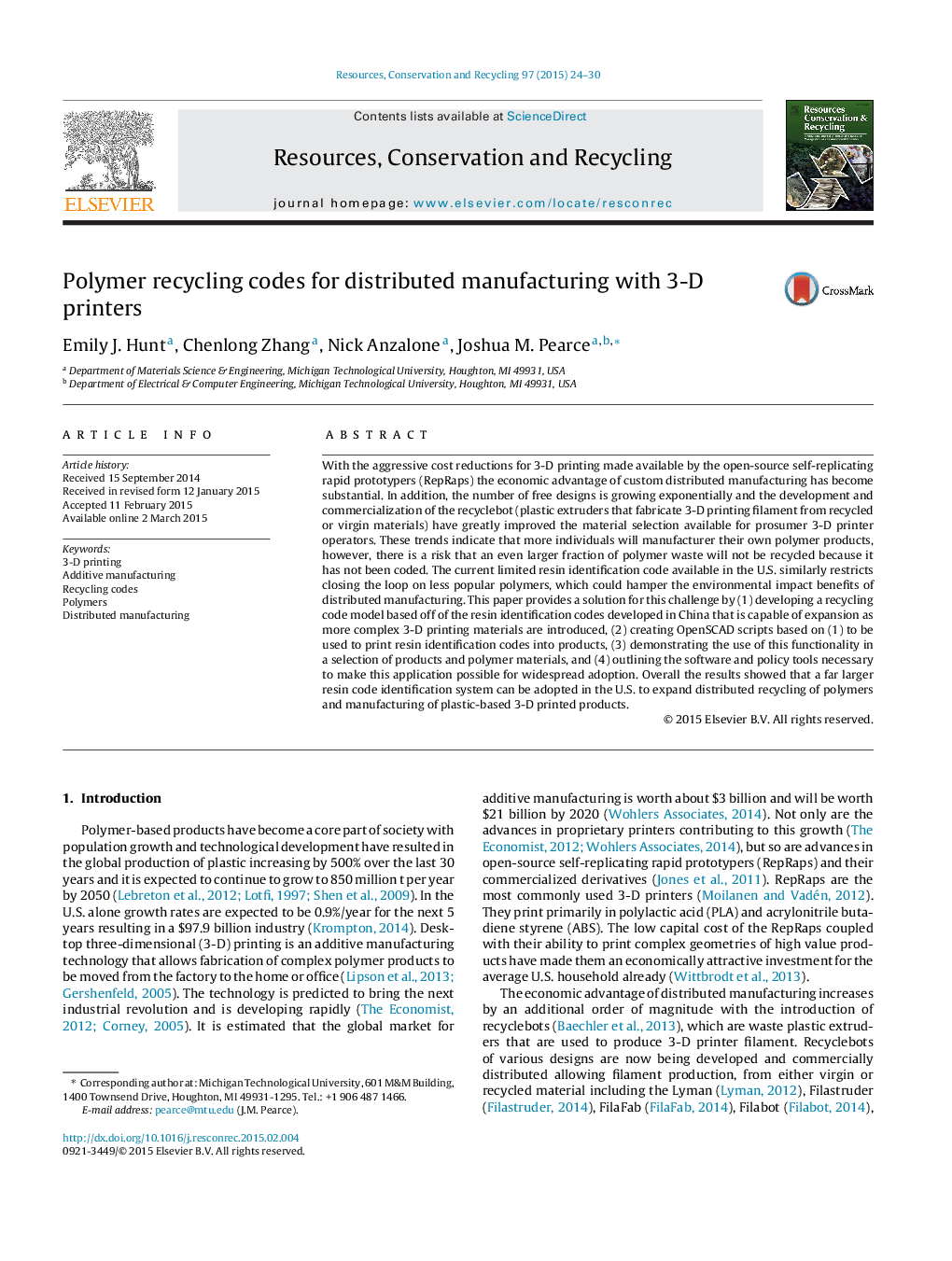| کد مقاله | کد نشریه | سال انتشار | مقاله انگلیسی | نسخه تمام متن |
|---|---|---|---|---|
| 1062974 | 1485692 | 2015 | 7 صفحه PDF | دانلود رایگان |
• Cost reductions for 3-D printing give economic advantage to distributed manufacturing.
• Number of free designs is growing exponentially.
• Development and commercialization of the recyclebot improved the material selection.
• This study developed recycling code model capable of expansion.
• Created OpenSCAD scripts to print resin identification codes into products.
With the aggressive cost reductions for 3-D printing made available by the open-source self-replicating rapid prototypers (RepRaps) the economic advantage of custom distributed manufacturing has become substantial. In addition, the number of free designs is growing exponentially and the development and commercialization of the recyclebot (plastic extruders that fabricate 3-D printing filament from recycled or virgin materials) have greatly improved the material selection available for prosumer 3-D printer operators. These trends indicate that more individuals will manufacturer their own polymer products, however, there is a risk that an even larger fraction of polymer waste will not be recycled because it has not been coded. The current limited resin identification code available in the U.S. similarly restricts closing the loop on less popular polymers, which could hamper the environmental impact benefits of distributed manufacturing. This paper provides a solution for this challenge by (1) developing a recycling code model based off of the resin identification codes developed in China that is capable of expansion as more complex 3-D printing materials are introduced, (2) creating OpenSCAD scripts based on (1) to be used to print resin identification codes into products, (3) demonstrating the use of this functionality in a selection of products and polymer materials, and (4) outlining the software and policy tools necessary to make this application possible for widespread adoption. Overall the results showed that a far larger resin code identification system can be adopted in the U.S. to expand distributed recycling of polymers and manufacturing of plastic-based 3-D printed products.
Figure optionsDownload as PowerPoint slide
Journal: Resources, Conservation and Recycling - Volume 97, April 2015, Pages 24–30
